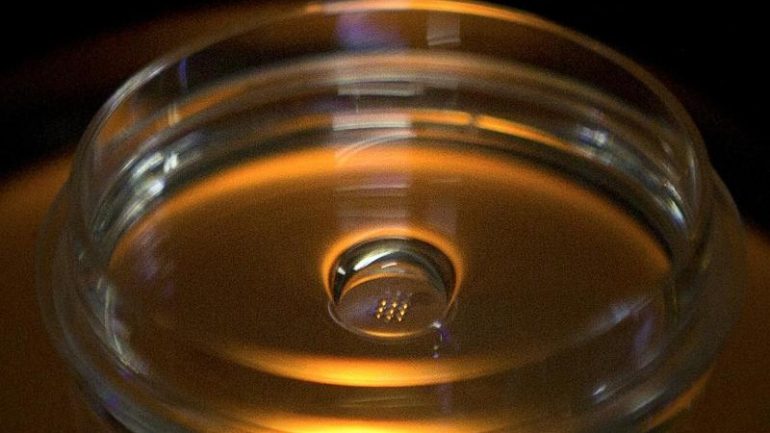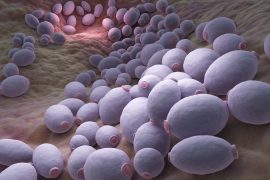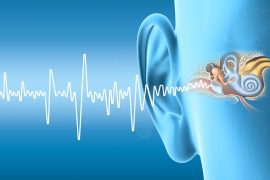Halle / Chicago (DPA) – From the standpoint of the National Academy of Sciences Leopoldina, restrictions on research on early embryos outside the human body should fall in Germany.
According to a statement published on Wednesday by the Association of Leopoldina and the German Academy of Sciences, according to international standards, scientists should be able to pursue high-level research goals.
Also on Wednesday, the International Society for Stem Cell Research (ISSCR) spoke in favor of being able to cultivate embryos made from human stem cells for more than the previously normal 14 days in the laboratory. According to this, researchers should be allowed to develop a model of the fetus in the laboratory as long as it meets the related research objective – but after individual testing.
In the final version of the International Guidelines from 2016, more than the 14-day rule was considered a “prohibited research activity”. Since then, research has made great progress – in the cultivation of human embryos and, for example, in the creation of embryos from stem cells, the eleven-member working group cites for a new version of the guideline in the journal “Stem Cells”. Report”.
The authors come from the United States, Canada, Great Britain, Austria, Japan, and China. “Although the committee recognizes that cultivation of human embryos over 14 days is prohibited in many legal systems by laws or regulations, it believes that a blanket ban in this area may hinder important research directions,” the group writes .
Each research project should be examined and evaluated individually according to the scientific and ethical aspects. It is specifically about the degree of integration of an embryonic model — that is, whether it develops all the characteristics necessary for further maturation. Accordingly, the transfer of a fetus into the uterus of an individual or animal should be prohibited.
In response to the new guideline, Thomas Zwaka of the Icans School of Medicine at Mount Sinai in New York said: “Cell culture models beyond the 14-day rule are essential to our understanding of human development, as some of the most important developmental steps are in this It is only after the period, moreover, that it is becoming increasingly clear that the basis of many serious developmental disorders can be understood with advanced models. ” Fetal models are not “real human lives”. The new guidelines are obsolete because many researchers have been aggressively pushing the limits of what has been possible for years.
It is perhaps no coincidence that Leopoldina’s statement was published on the same day the new ISSCR guidelines were issued. According to the statement, the Embryo Protection Act (ESchG) passed in 1990 allows the creation of human embryos in vitro for the purpose of reproduction. But it forbids any research on them. On the other hand, in countries such as Israel, Denmark, Sweden, Great Britain, the United States, and Japan, research on early human embryos that are no longer necessary for reproduction is permitted within narrow limits.
Additional embryos that were created during fertility treatment, but are no longer needed, should be allowed to be used for science. There is a specially formed committee to review related research projects and their goals.
The statement emphasizes that, according to international scientific opinion, there are several important questions that can only be tackled scientifically with the help of embryonic research. This includes treating common diseases such as diabetes, osteoarthritis, heart attacks or strokes with the help of stem cell lines. In addition, it is about elucidating the early developmental biology of humans, improving reproductive medicine or better development of the fetus and fetus during pregnancy.
So far, German scientists have been able to contribute very little to this research, the statement said. “Thirty years after ESHG came into force, academies believe it is time to reevaluate the legally permissible and morally justifiable operation of early human embryos.”
From the point of view of science academies, the decision to provide surplus embryos for research should be with the couple from whom they come. When the family planning of these couples is complete, the remaining embryos can only be discarded or donated to other couples.
According to the information, more than 319,000 children were born in Germany after in vitro fertilization (IVF) between 1997 and 2018. In the process, after hormone administration the egg cells are removed from the female and brought along with the male’s semen. In some cases, more embryos are produced than are transferred to the woman.
“Research on early embryos in vitro, i.e. outside the human body, which were created for reproductive purposes but are no longer used for this purpose (…), should be allowed according to international standards,” The statement recommended. “Permission to conduct research should only apply to high-ranking research goals that serve to gain scientific knowledge in the context of basic research and to expand medical knowledge in the development of clinical, preventive, or therapeutic procedures.”
Therefore a federal authority can decide on the project’s acceptability in conjunction with an ethics committee. Embryo research has been the cause of intense debate for decades. Research interests play a role as well as ethical and legal considerations.
© DPA-Infocom, DPA: 210527-9497929 / 2

Web guru. Amateur thinker. Unapologetic problem solver. Zombie expert. Hipster-friendly travel geek. Social mediaholic.





